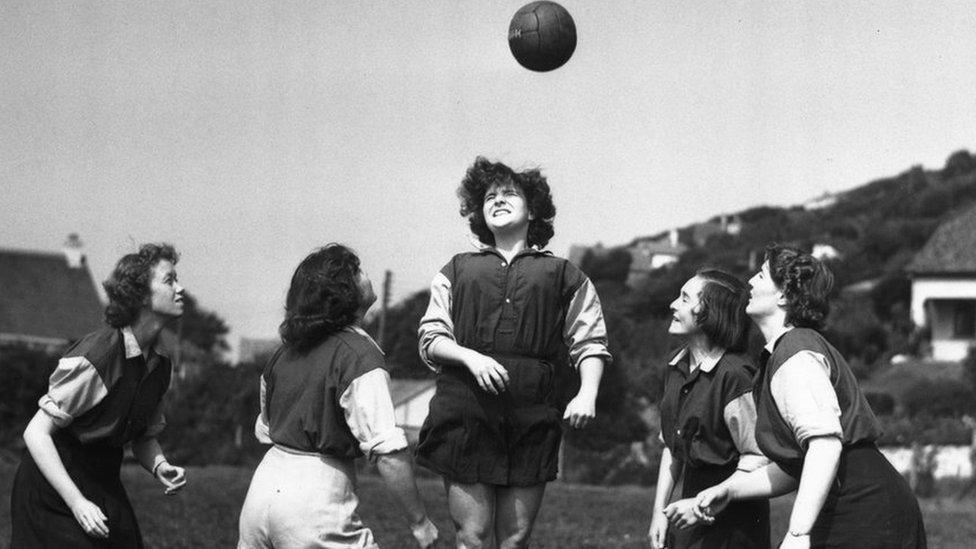The Teesside University centre developing future England footballers
- Published
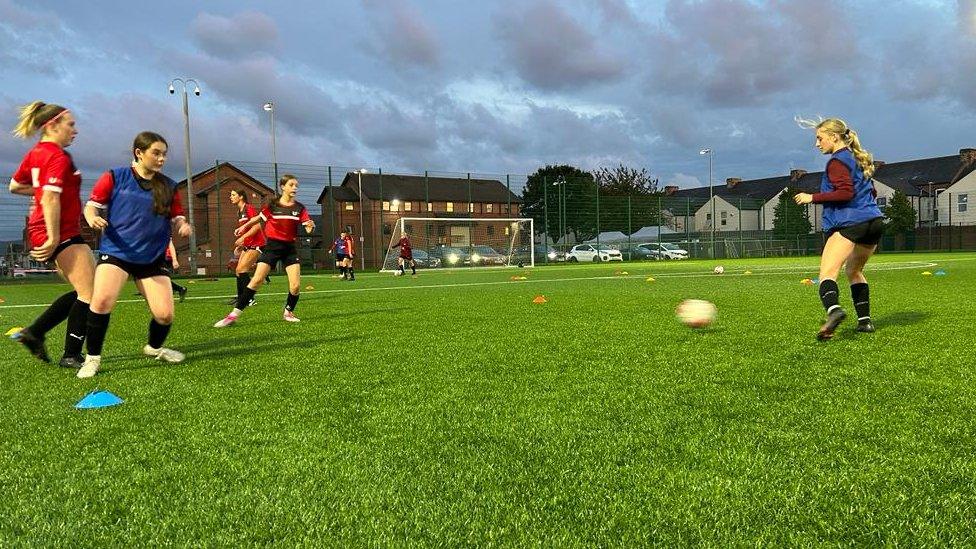
Girls are given elite performance training at the ETC
At a training centre in Middlesbrough, dozens of girls and a team of FA-qualified coaches are aiming to turn out future England Lionesses. The BBC went to meet them.
The Emerging Talent Centre (ETC) at Teesside University takes the best girls playing football in the area and develops their skills and attitude on and off the pitch.
Previous versions of the centre have already championed England players Beth Mead and Jordan Nobbs.
"Girls are now looking at female footballers and are thinking: 'I would like to do that'," Jenni Duffy-Smith, a former player with 20 years of grassroots experience, says.
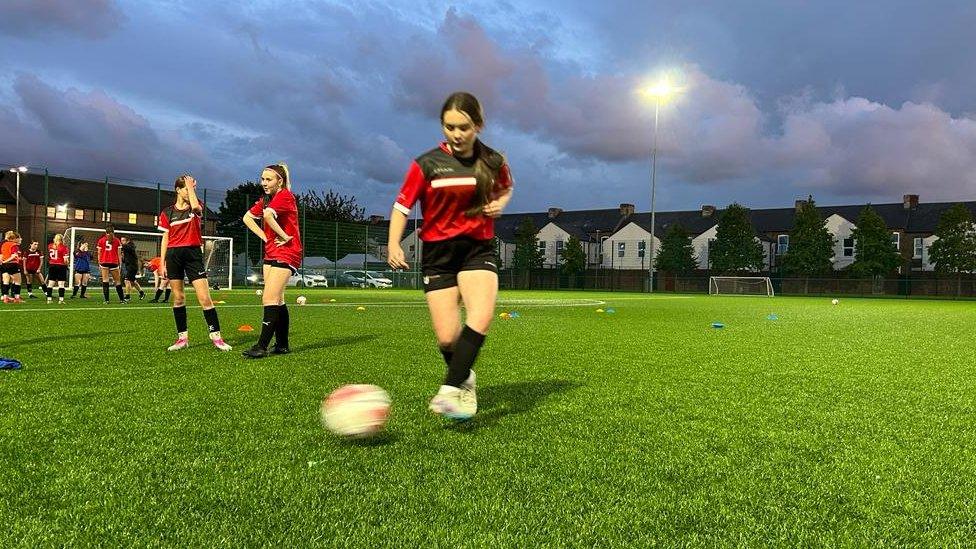
Training sessions last for two hours, twice a week
Ms Duffy-Smith believes the influence of the Lionesses can not be underestimated and is making a "massive" difference to attitudes to the women's game.
"If you look at 10 years ago, who was coaching girls' teams? Was it someone's dad? Now we've got men and women actively wanting to work with these girls and that hasn't always been the case.," she says.
"The strides that we've made are massive."
She says she was delighted to have helped "pave the way" for the next generation, adding women's football could now be a career.
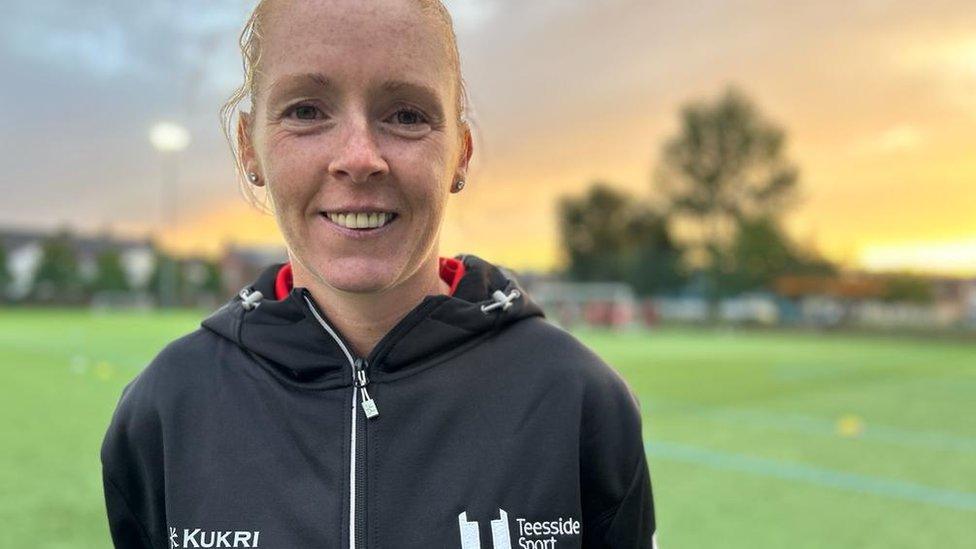
Coach Jenni Duffy-Smith is a former Middlesbrough player and also works as a PE teacher
She quoted Marrie Wieczorek, who spent her entire career with Middlesbrough, 20 years as a player and manager as well as earning three caps for England, who said "women play football because they love it - not to become superstars".
The ETC is part of the FA England Pathway programme and offers girls aged between 11 and 16 elite performance training, described as "life changing" for some young women.
About 85 girls meet at the centre every week for training sessions, separated into U12, U14 and U16 categories.
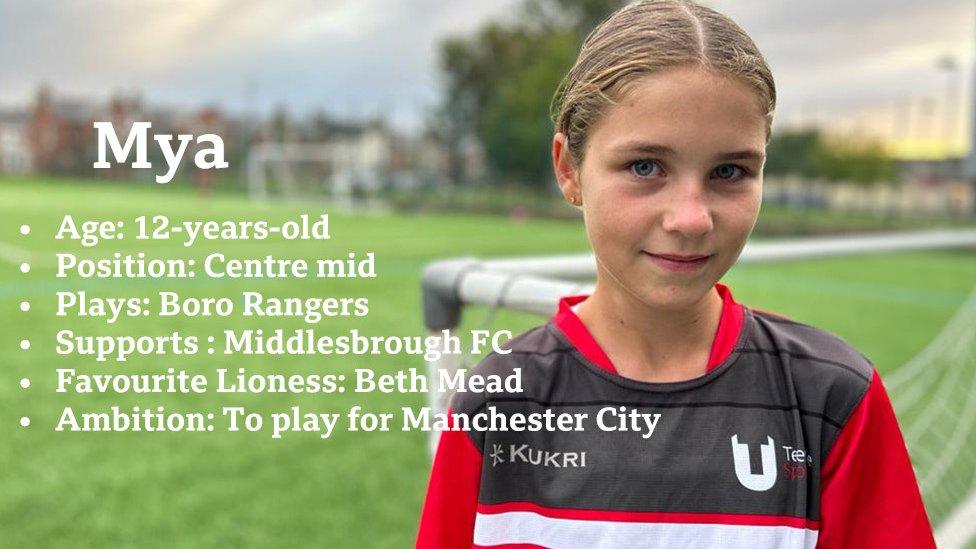
Maya says football "can help take your mind off a lot of stuff"
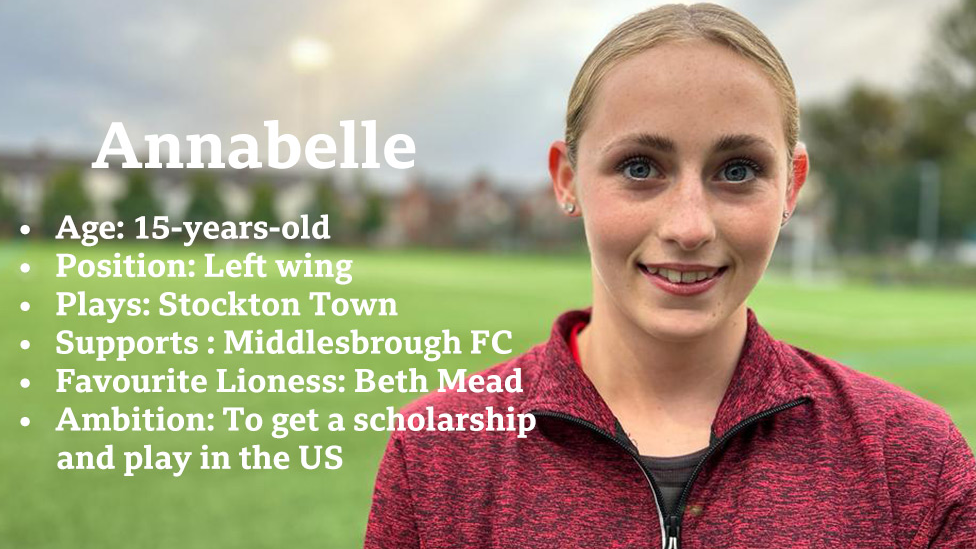
Annabelle says she learned "different things which is really good for us"
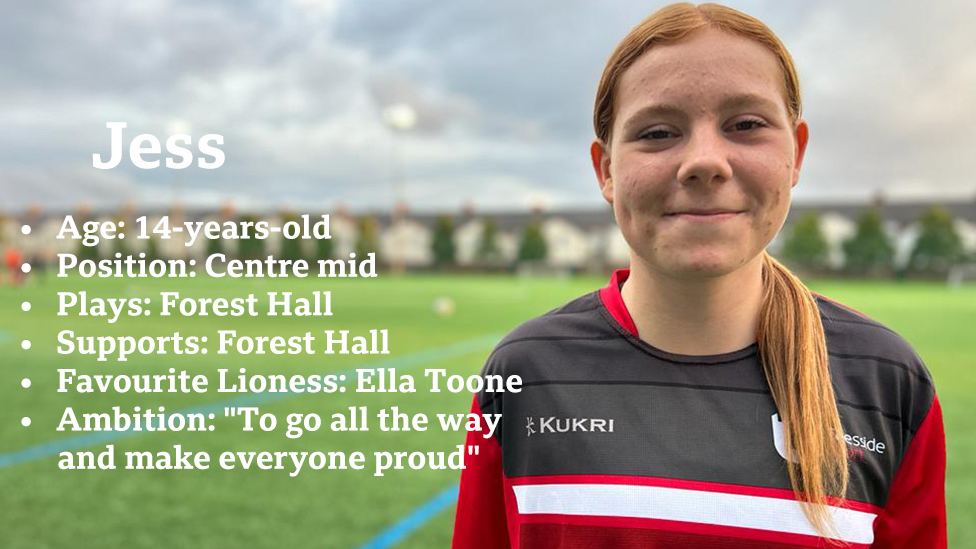
Jess says the facilities are "amazing"
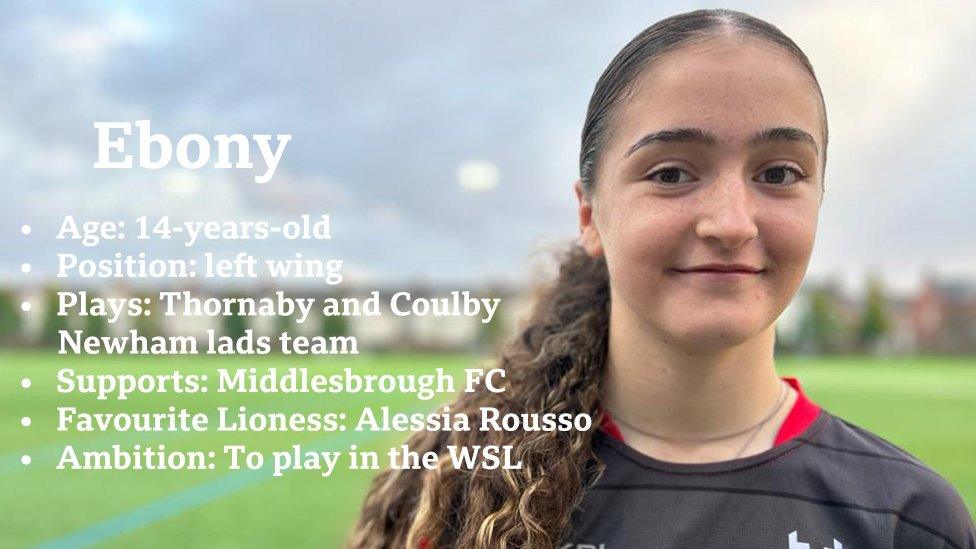
Ebony says she does seven sessions every week
Head coach Liam Cox, who held the same position for Stockton Town FC, is certain there are future England players in the ranks.
"We're looking for that individual potential, whether we think they can make it," he says.
"They're only young but we want to see their potential increase, I was surprised at the talent levels - it's through the roof, there's so much talent in the area and their dedication is huge.
"The girls don't miss a beat, I can see some of these going on and making a living playing football."
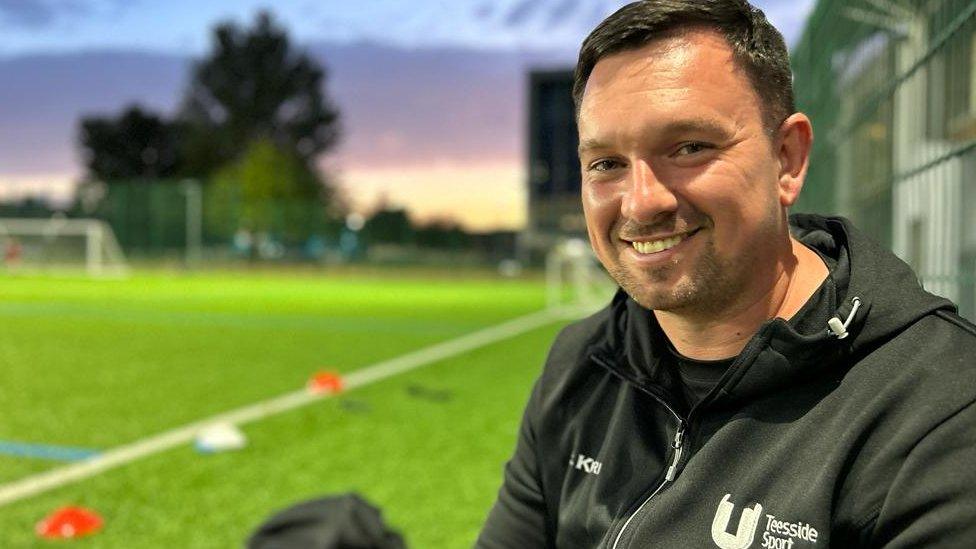
Player development lead Liam Cox is convinced there are future England players at the ETC
Some 200 young players took part in trials in July to join the ETC, and the dedication of those on the pitch is apparent.
"They're turning up for training multiple times a week, as well as strength and conditioning sessions, they're giving up three weekday evenings plus a weekend day, and they do things on their spare time too, playing for their own clubs, many of them are five to six nights a week," Mr Cox says.
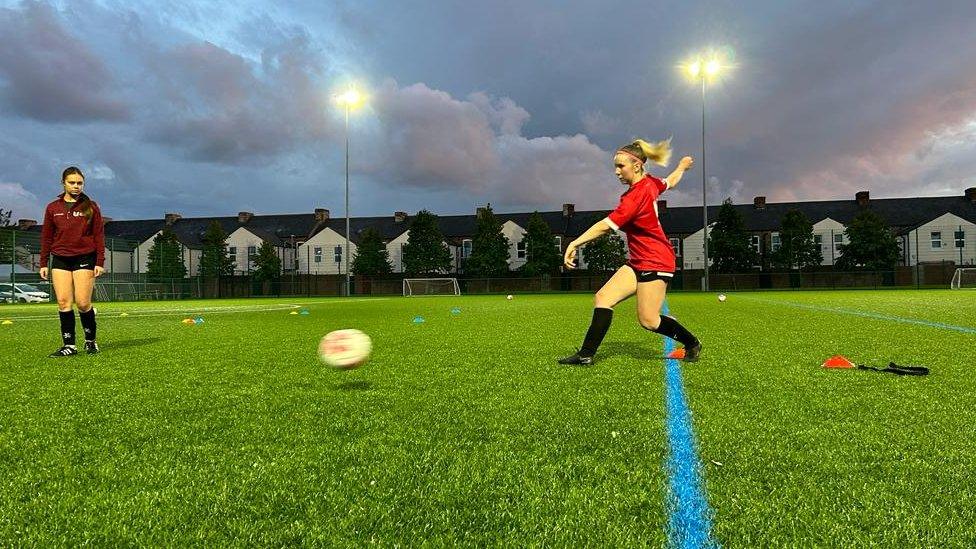
As well as playing at the ETC, the girls remain members of grassroots teams
Off the pitches in the Strength and Conditioning Laboratories, girls are offered professional facilities, such as a sports injury clinic and hydrotherapy pool, which is often used by first team players from Middlesbrough FC.
"From a fitness point of view we track it and see how they improve, we know it's working," says Dr Matthew Wright, who heads up the department.
"We work with the individual first, then the athlete and then the footballer," he adds.
"Here we develop good movement skills - some from gymnastics and yoga and that develops into Olympic-style weightlifting in the gym, as well as movement like stopping and starting on the pitch."
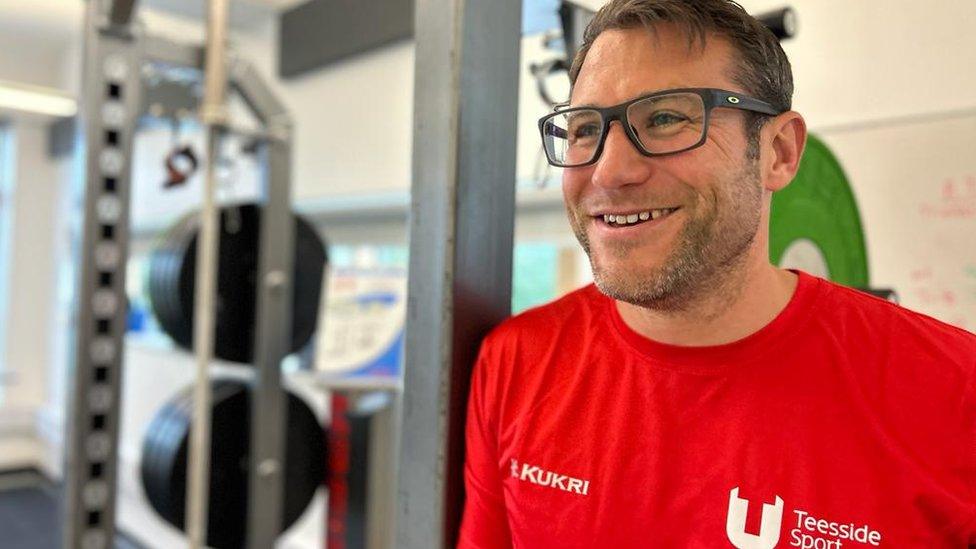
Dr Matthew Wright heads training off the pitch to improve the girl's endurance and overall stamina
Lessons in the lab also gives the girls an introduction to university and where their love of the game could take them, such as studying for a degree in therapy and rehabilitation or sports development - like Beth Mead who graduated from the university in 2016.
ETC manager Chris Walton says he has noticed a real sense of "complete culture and society change" around women's football.
He admits in the past women have trained according to a programme set out for men, but adds it's now all specifically geared around women and what works for them.
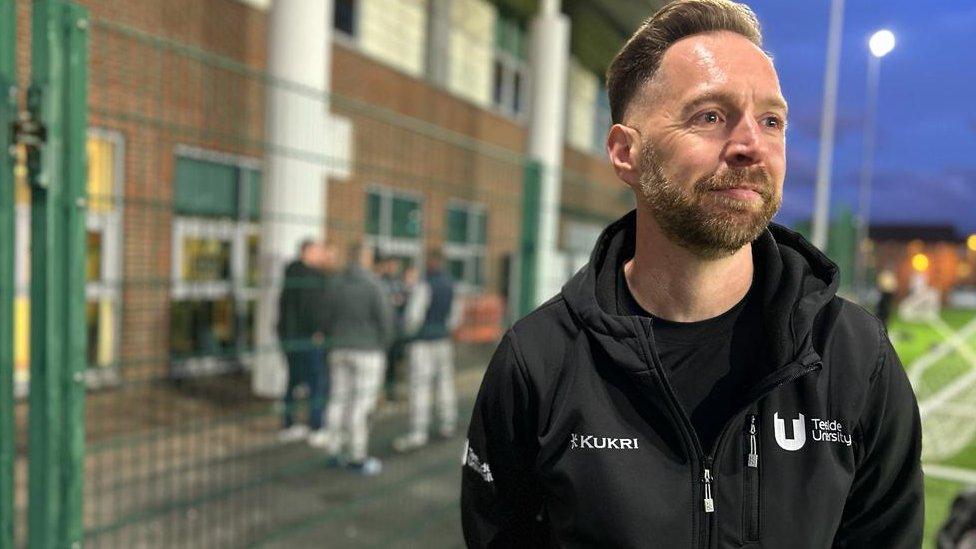
Chris Walton is the ETC manager responsible for the running of the site
"The main thing that sets us apart is we're objective and not trying to set the girls down a certain pathway," he says.
"We're honest when they girls finish with us at 16 - we point them towards certain clubs where their skills will work. They also get priority for our facilities."
In the girls' last year at the ETC, the coaches identify talent at a fixture programme which involves six games across the course of the year.
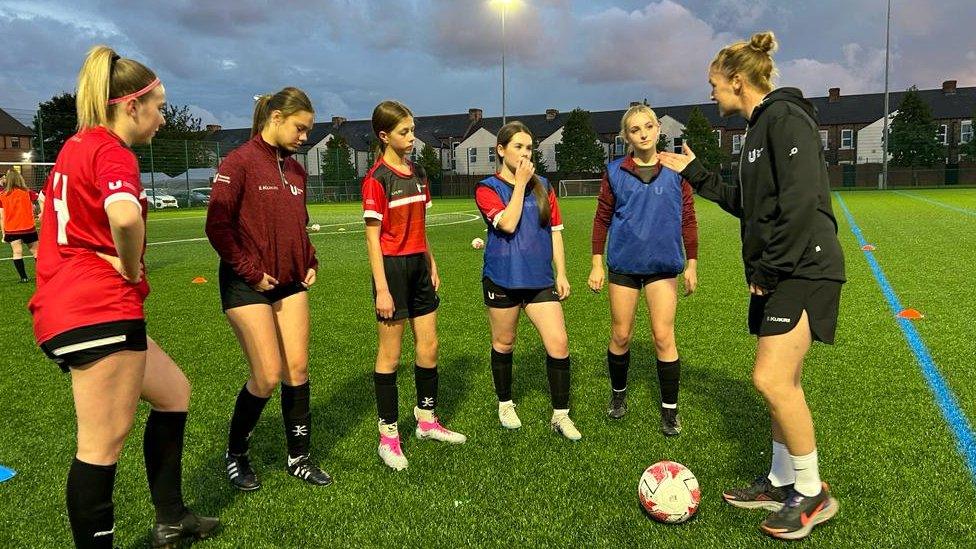
Coach Jenni Duffy-Smith works on the girls' skills on the pitch
Mr Walton says he wants "our girls to test themselves against the best girls in the country", getting opportunities to play against Manchester United and Liverpool "not all the time, but also against girls performing at the same level who could go on to England camps".
They are also picked up by the FA player referral process and through the regional coaching network, looking at individual players and what would suit them next, including pro game academies.
Mr Walton adds: "It's life changing for some of the girls - here they get elite performance training."
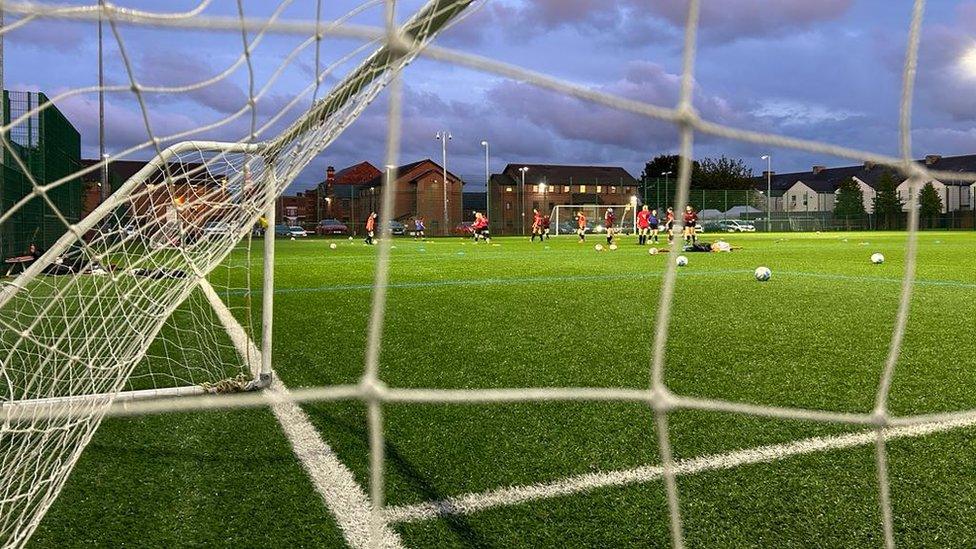
The ETC training pitches at Teesside University

Follow BBC North East & Cumbria on Facebook, external, X (formerly Twitter), , externaland Instagram, external. Send your story ideas to northeastandcumbria@bbc.co.uk, external.
Related topics
- Published23 November 2022
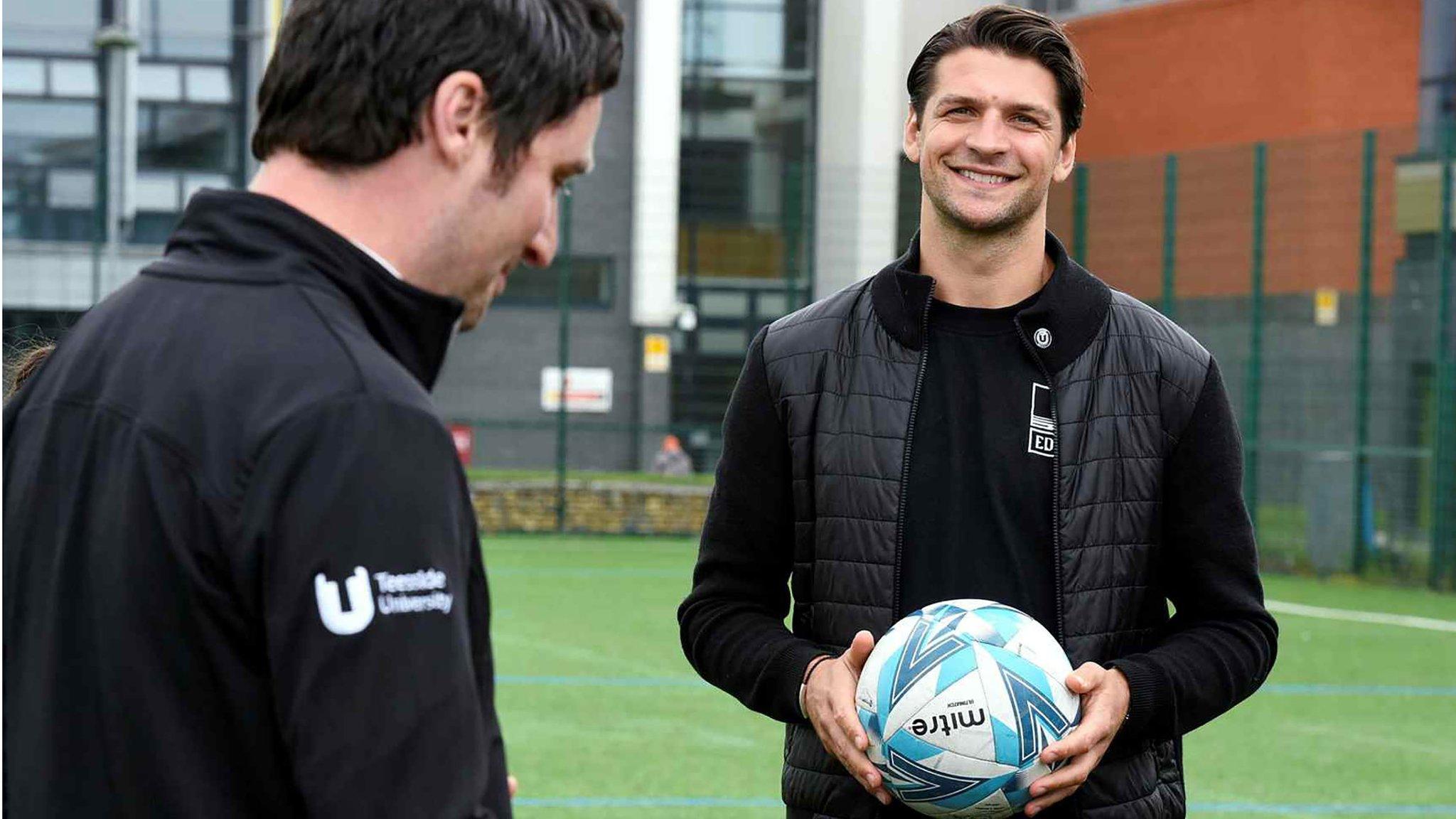
- Published26 September 2022
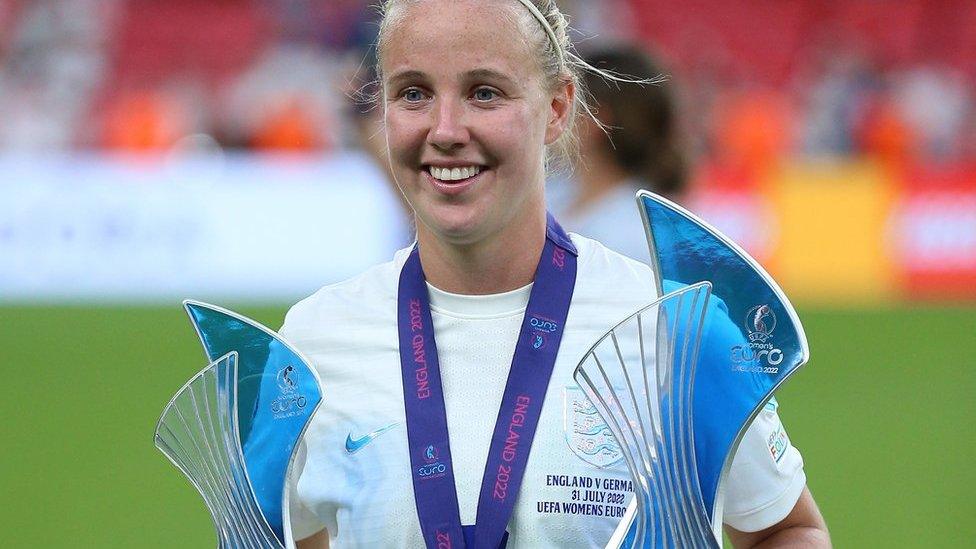
- Published18 August 2023
